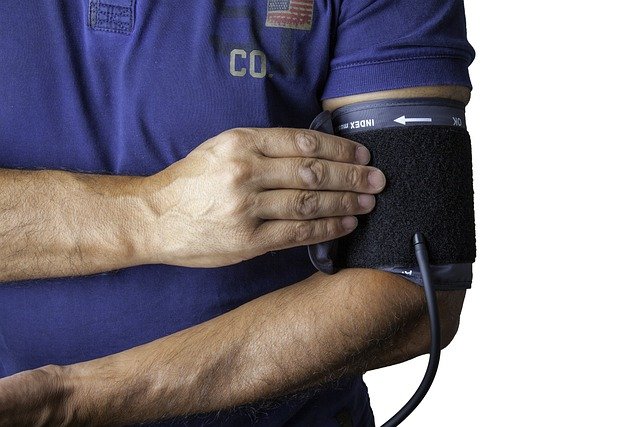Exploring the Role of a Medical Assistant: Responsibilities and Skills
Medical assistants play a vital role in healthcare settings, offering both clinical and administrative support. From taking patient histories to managing office tasks, discover the variety of duties that make this role essential to the healthcare system. Learn about the skills required and how medical assistants contribute to the smooth running of medical practices and hospitals.

Medical assistants are essential healthcare professionals who provide crucial support in both clinical and administrative capacities across various medical settings. Their versatile role helps maintain efficient healthcare operations while ensuring patients receive quality care. As the healthcare industry continues to evolve, medical assistants have become increasingly important team members who contribute significantly to positive patient outcomes and smooth facility operations.
Key Responsibilities of Medical Assistants
Medical assistants perform a wide range of duties that vary depending on the healthcare setting, specialty, and state regulations. On the clinical side, they often prepare patients for examinations, take vital signs, collect and prepare laboratory specimens, and assist physicians during examinations. They may also administer medications as directed by physicians, perform basic laboratory tests, dispose of contaminated supplies, and sterilize medical instruments.
Administratively, medical assistants handle scheduling appointments, maintaining medical records, coding and filling out insurance forms, arranging for hospital admissions, and managing billing and bookkeeping. In smaller practices, medical assistants might take on broader responsibilities, while larger facilities may have them specialize in either clinical or administrative functions.
Essential Skills for Success as a Medical Assistant
Successful medical assistants possess a blend of technical and interpersonal skills. Technical proficiencies include knowledge of medical terminology, understanding of basic clinical procedures, familiarity with electronic health record systems, and competency in taking vital signs. Equally important are soft skills such as clear communication, empathy, attention to detail, adaptability, and the ability to multitask efficiently.
Problem-solving capabilities are particularly valuable as medical assistants often need to address unexpected situations while maintaining a calm, professional demeanor. Cultural competence is also increasingly important in today’s diverse healthcare environment, enabling medical assistants to provide respectful care to patients from various backgrounds.
The Importance of Medical Assistants in Healthcare
Medical assistants significantly impact healthcare delivery by improving operational efficiency and enhancing patient experiences. By handling administrative tasks, they allow physicians and nurses to focus more on direct patient care, effectively increasing the number of patients that can be seen. Their role in gathering preliminary information and preparing patients helps streamline appointments and examinations.
Beyond efficiency, medical assistants often serve as patient advocates, helping individuals navigate complex healthcare systems and understand their care plans. In many cases, they become familiar faces that provide continuity and comfort to patients who may feel anxious about medical visits. This combination of operational support and patient advocacy makes medical assistants invaluable to modern healthcare systems.
How Medical Assistants Contribute to Patient Care
While not providing direct treatment in the way physicians and nurses do, medical assistants make significant contributions to patient care. They often serve as the first point of contact, setting the tone for the patient’s entire healthcare experience. By efficiently managing check-in processes and collecting accurate preliminary information, they help ensure that providers have the necessary context for effective diagnosis and treatment.
Medical assistants also play a crucial role in patient education, explaining physicians’ instructions, demonstrating how to properly take medications, or teaching patients about dietary requirements. Their ability to communicate complex medical information in accessible terms helps improve patient compliance with treatment plans. Additionally, they often provide emotional support to patients who may be anxious or distressed about their health conditions.
Medical Assistant Training and Certification Programs
Becoming a medical assistant typically requires completion of a postsecondary education program, which can range from a certificate or diploma to an associate degree. These programs are offered at community colleges, vocational schools, technical schools, and universities, with durations ranging from one to two years. Coursework generally includes medical terminology, anatomy and physiology, basic pharmacology, clinical procedures, and administrative practices.
While certification is not always legally required, it has become increasingly expected by employers. Several organizations offer certification for medical assistants, including the American Association of Medical Assistants (AAMA), which offers the Certified Medical Assistant (CMA) credential, and the American Medical Technologists (AMT), which provides the Registered Medical Assistant (RMA) designation. These certifications typically require completing an accredited program and passing an examination, with periodic recertification through continuing education.
Many medical assistants also pursue specialized certifications in areas such as phlebotomy, electrocardiography, or specific medical specialties like pediatrics or obstetrics and gynecology. These additional credentials can enhance career prospects and may lead to higher compensation or more specialized roles within the healthcare system.
Career Outlook and Advancement Opportunities
The medical assistant profession offers promising growth prospects, with employment projected to increase faster than average for all occupations. This growth is driven by several factors, including the aging population requiring more medical services, the expansion of healthcare facilities, and the increasing emphasis on preventive care.
Experienced medical assistants can advance their careers in various ways. Some specialize in particular areas of healthcare such as pediatrics, obstetrics, or cardiology. Others move into supervisory or management roles, overseeing other medical assistants or managing entire departments. With additional education, medical assistants can also transition into other healthcare professions such as nursing, physician assistants, or healthcare administration.
The versatility of medical assistant training provides a solid foundation for career growth within the healthcare industry, making it an attractive entry point for those interested in healthcare careers but uncertain about which specific path to pursue.
This article is for informational purposes only and should not be considered medical advice. Please consult a qualified healthcare professional for personalized guidance and treatment.




